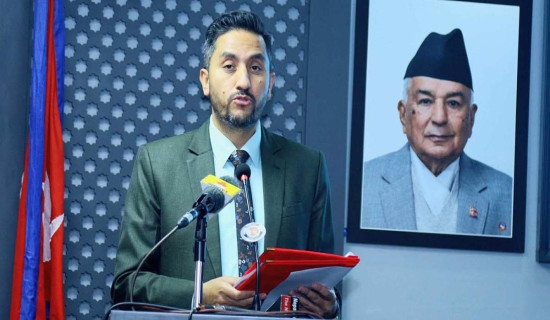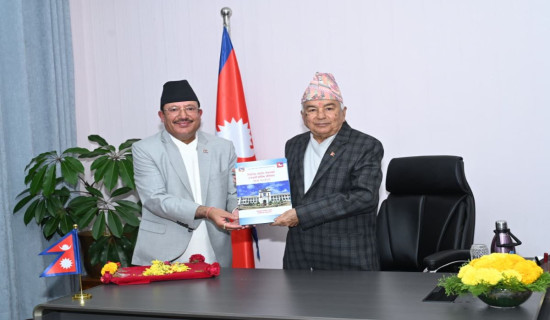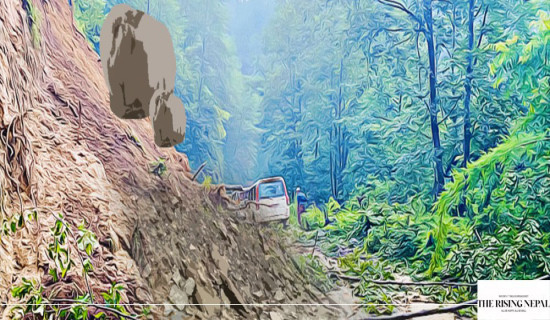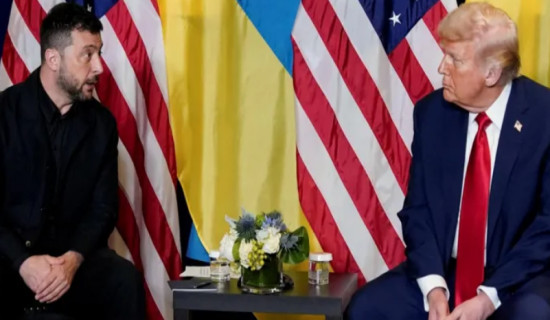- Friday, 17 October 2025
Discourse On Democratic Institutions
In the realm of discourses on democracy, competitive authoritarianism comes into use frequently in the contemporary world. Competitive authoritarianism denotes a type of regime in which meaningful democratic institutions coexist with serious abuse of institutions by the incumbent leaders or coterie of authority wielders. It upholds electoral competition but the polling is not always free and unfair. In almost all democratic countries tendencies to tilt to competitive authoritarianism do prevail. In almost all multiparty democracies where strong leaders wield power, they make a domineering push to move into competitive authoritarianism. There are some examples where competitive authoritarian democracies harden into full-blown authoritarianism while others glide back and forth between democracy and authoritarianism.
Political analysts used to dub India’s democracy as competitive authoritarianism when late Indira Gandhi was ruling India especially during the emergency rule. India was also described as competitive authoritarian democracy when incumbent Prime Minister Narendra Modi was ruling India during his previous tenure with single party majority in the parliament. Even the mature democratic countries like Brazil and the US are often times alleged to have gone to backsliding through a recourse to the authoritarian tilts. In this context, the analogy of the past US president Donald Trump who is set to be new US president in this elections is often cited as an authoritarian leader as he not only failed to uphold the abiding norms of democracy but attempted to resist the smooth handover of power to the incoming successor.
Wave of democracy
Political analysts have commented that getting multiparty democracy introduced in a particular country is easier but making it lasting, engaging and resilient by upholding democratic values and norms is challenging. When the authoritarian regimes had collapsed worldwide one after the other during the decade of nineties, it was appreciated that a new wave has been swayed in favour of democracy. The so-called wave of democracy sweeping across the world around the nineties was celebrated when the communist regimes in the Soviet Union and the Eastern Europe, among others, tumbled one after the other. It had been termed as the biggest triumph of liberal values over the totalitarian order. And it had seemed that there will be no autocratic or dictatorial regimes left to rule their citizens in the immediate future as the unstoppable march of democracy will crush them down one after the other.
The reason behind the falling of the authoritarian regimes and transition to democracy in 1990s as mentioned by late Samuel Huntington are, among others, the growing legitimacy problems and their failure to perform according to the expectations and aspirations of the people. Robert A Dahl, reputed political scientist, remarks in his work titled "On Democracy" that “with visible failures of the totalitarian systems military dictatorships and many other authoritarian regimes, anti-democratic ideas, beliefs and ideologies lost their previous appeal throughout much of the world. Never before in human history had so many people supported democratic ideas and institutions”.
However, this has proved to be a false prophesy. The democracy can be reversed and rolled back or its basic tenets and practices can be overruled as this has happened in many countries where democracy has either failed to deliver or institutionalised in robust terms. This has primarily happened as pointed out above due to systemic failures of democratic regimes to operate and deliver effectively for addressing the needs and aspirations of the people. The growing inability to provide welfare, prosperity, equity, justice, domestic order or external security have disappointed the citizens and as a result, citizens felt alienated from the process of democratic governance.
The widening and deepening of democracy has been a compelling need to assure that it not only delivers but is also practiced as a way of life of the people. The deepening and widening of democracy calls for moving beyond the planks of the formal democratic institutions and procedures like periodic elections every five year and reaching out to the people and enabling them to participate continuously as the shaper and maker of democratic goods and services. It is therefore that the democratic institution should be fused with the politics of participatory democracy. The democratic political practices require not only political contestations, but also that the contestation be peppered with certain basic moral and political principles including citizen control over government.
Accountability
The democratic institutions need to abide by democratic promises by enhancing citizen participation so that the exercise of power at all levels of political authority is endorsed by the citizens. This entails maximising the accountability and transparency of the holders of the political power and bureaucratic office at all levels. In order to enhance the democratic competence of the citizens to enable them to engage with and participate in the democratic institutions for increasing the accountability and answerability of the latter, it is necessary that the focus be laid on democracy education for citizens so that they not only imbibe the values and notions of democracy and democratic institutions but practice it in their day to day life by participating in the democratic politics.
The pedagogy of effective democracy education should include a basic understanding and appreciation of how democracy and its institutions work and how these contrast to those of the undemocratic governments, inculcation of public spiritedness and a sense of shared responsibility by all citizens. Moreover, it should also impart basics of participatory skills which empower citizens to take part effectively to address the problems of their society. In order to make democracy robust with a capacity to deliver it is necessary that democracy education be made an integral part of the formal or non-formal education for every citizen.
(The author is presently associated with Policy Research Institute (PRI) as a senior research fellow. rijalmukti@gmail.com)











-original-thumb.jpg)




